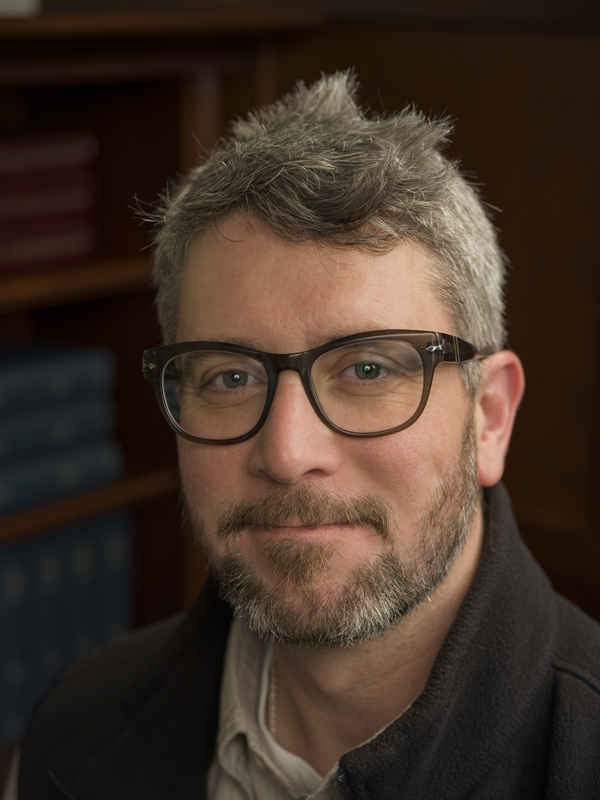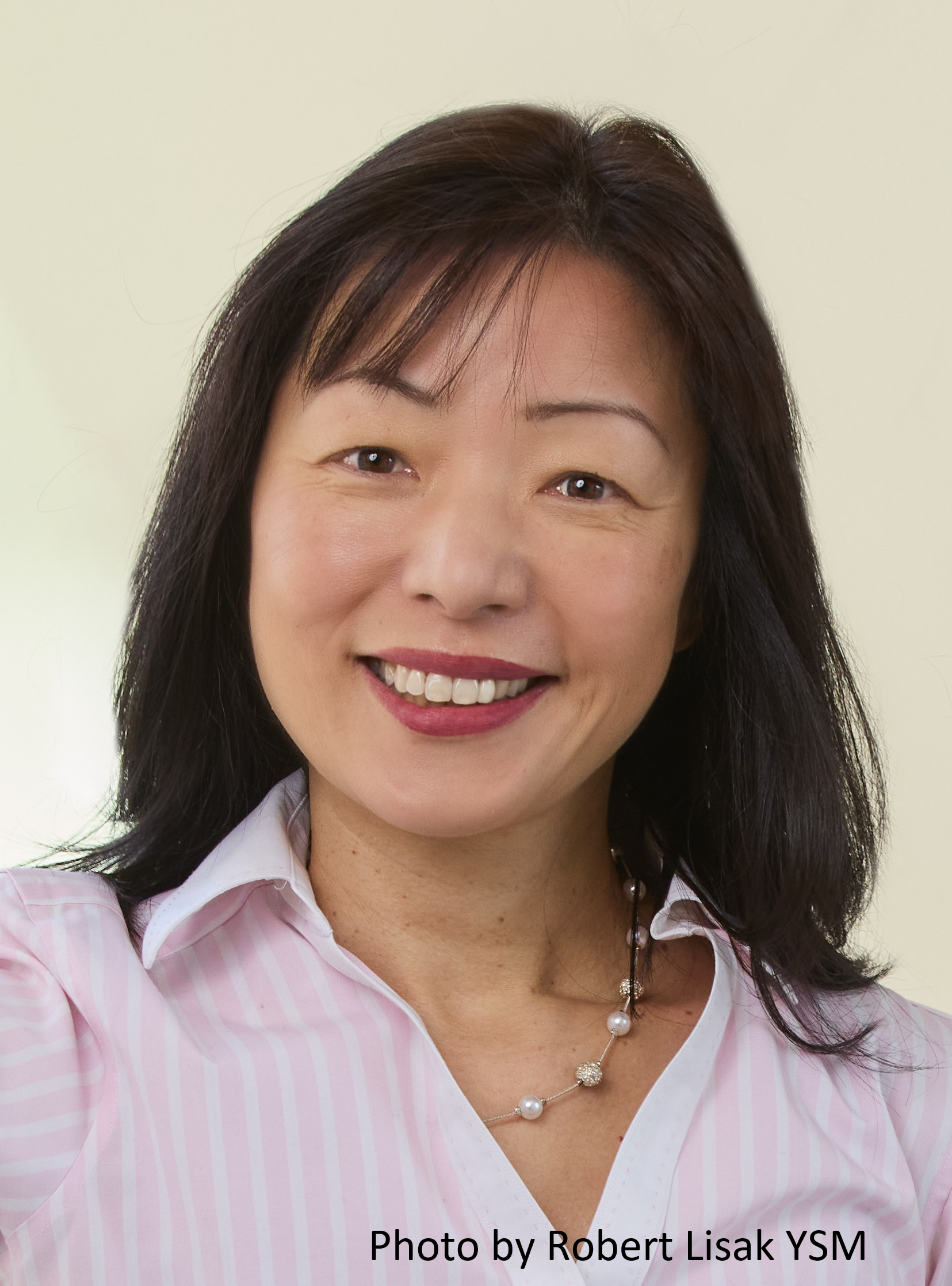The 2025 Keio Medical Science Prize Awardees
Clifford Paul Brangwynne, Ph.D.

June K. Wu ’92 Professor of Chemical and Biological Engineering, Princeton University Founding Director, Omenn-Darling Bioengineering Institute, Princeton University Investigator, Howard Hughes Medical Institute
Reason for Selection
“Discovery of Liquid-Liquid Phase Separation in Cells”
When water and oil are placed together in a glass and stirred, they naturally fail to mix and quickly separate. A similar phenomenon occurs when two aqueous solutions of different concentrations are combined, with one forming droplets within the other. This phenomenon is known as “liquid–liquid phase separation” and has long been a fundamental concept in industrial and chemical fields. Dr. Brangwynne discovered that liquid–liquid phase separation also occurs within living cells. This groundbreaking finding overturned the conventional belief that all structures inside cells are enclosed by membranes, rewriting the very textbooks of biology. Furthermore, Dr. Brangwynne developed optoDroplet, a technique to manipulate liquid–liquid phase separation. Building on this technology, it has since been suggested that such phase separation may also be involved in intracellular signal transduction and the onset of neurodegenerative diseases. The impact of these achievements on medicine and the life sciences as a whole is immense, making Dr. Brangwynne truly deserving of the Keio Medical Science Prize.
Background
Education
- 2001
- Carnegie Mellon University(B.S. Materials Science & Engineering, minor in Physics, with University Honors)
- 2007
- Harvard University(Ph.D. Applied Physics)
position
- 1997-1998
- Carnegie Mellon University, Center for Light Microscope Imaging and Biotechnology
- 1998-1999. Mar
- Harvard Medical School, Department of Pathology, Researched directional cell migration and tissue morphogenesis
- 1999. Jun-Aug
- Harvard Medical School, Department of Pathology, using light microscopy and soft lithographic cell patterning
- 1999. Dec-2000
- Harvard Medical School, Department of Pathology, laboratory of Prof. Donald Ingber
- 2002-2007
- Harvard University, Doctoral research in the laboratory of Prof. David A. Weitz. Ph.D. Thesis title: “Mechanics and dynamics of microtubule bending”
- 2007-2010
- Max Planck Institute for Molecular Cell Biology and Genetics, & MPI for Physics Max Planck Institute for Molecular Cell Biology and Genetics, & MPI for Physics of Complex Systems, Dresden, Germany, Postdoctoral training with Profs. Tony Hyman (MPI-CBG) and Frank Jülicher (MPI-PKS)
- 2011-2017
- Princeton University, Assistant Professor, Chemical and Biological Engineering
- 2017-2019
- Princeton University, Associate Professor, Chemical and Biological Engineering
- 2018-present在
- Howard Hughes Medical Institute, HHMI Investigator
- 2019-2020
- Princeton University, Professor, Chemical and Biological Engineering
- 2020-2023
- Princeton University, Professor, Director, Princeton Bioengineering Initiative
- 2020-present
- Princeton University, - June K. Wu ’92 Professor of Chemical and Biological Engineering -Associated Faculty, Lewis Sigler Institute, Quant. & Comp. Biology Program -Associated Faculty, Molecular Biology -Associated Faculty, Princeton Institute for the Science & Technology of Materials -Associated Faculty, Princeton Institute for Computational Science & Engineering
- 2022-2023
- Marine Biological Laboratory, Whitman Fellow
- 2023-present
- Princeton University, Founding Director, Omenn-Darling Bioengineering Institute
- 2024-present
- Marine Biological Laboratory, co-Director of MBL Physiology Summer Course (7wk)
Major Honors/Awards
- 2018-2023
- MacArthur Fellow
- 2020
- Wiley Prize in Biomedical Sciences
- 2021
- HFSP Nakasone Award
- 2023
- Dickson Prize in Medicine
- 2023
- Breakthrough Prize in Life Sciences
Comments
I'm honored to receive the Keio Medical Science Prize in recognition for my contributions to elucidating phase separation as a fundamental mechanism underlying intracellular organization. Many dozens of different biological processes are now understood to be influenced by such phase transitions, and we're excited that efforts to modulate intracellular phase behavior are central to emerging therapeutics for treatment of devastating diseases.
Akiko Iwasaki, Ph.D.

Sterling Professor of Immunobiology and Molecular, Cellular and Developmental Biology, Yale School of Medicine
Director of the Center for Infection & Immunity, Yale School of Medicine
Investigator, Howard Hughes Medical Institute
Reason for Selection
"Advancing Understanding of Human Immunity to COVID-19"
Dr. Akiko Iwasaki has long investigated the molecular mechanisms of antiviral immune responses at mucosal surfaces, clarifying how DNA and RNA viruses are recognized through TLR9 and TLR7 within endosomes. Building on these foundational discoveries, she played a leading role during the COVID-19 pandemic by rapidly establishing an international research consortium and applying big-data approaches to integrate clinical and immunological analyses. Her work revealed key determinants of immunity, including sex-based differences in T cell responses and molecular mechanisms underlying post-acute sequelae such as “brain fog.” These findings elucidated critical immune factors that determine the success or failure of viral control in humans. Dr. Iwasaki’s achievements have significantly advanced human immunology and provide valuable guidance for vaccine design, therapeutic development, and preparedness for future pandemics.
Background
Education
- 1994
- University of Toronto(B.Sc.,major, Biochemistry Specialist Program; minor, Physics)
- 1998
- University of Toronto(Ph.D., Immunology)
Position
- 1992-1993
- University of Toronto, Undergraduate Researcher, Department of Biochemistry
- 1993-1998
- University of Toronto, Doctoral Student, Department of Immunology
- 1998-2000
- National Institutes of Allergy and Infectious Disease, NIH, Postdoctoral Fellow, Mucosal Immunity Section
- 2000-2004
- Yale School of Medicine, Assistant Professor, Department of Epidemiology and Public Health
- 2004-2006
- Yale School of Medicine, Assistant Professor, Section of Immunobiology
- 2006-2009
- Yale School of Medicine, Associate Professor, Department of Immunobiology
- 2009-2011
- Yale School of Medicine, Associate Professor with Tenure, Department of Immunobiology and Department of Molecular, Cellular and Developmental Biology
- 2011-2016
- Yale School of Medicine, Full Professor with Tenure, Department of Immunobiology and Department of Molecular, Cellular and Developmental Biology
- 2014-present
- Yale School of Medicine, Investigator, Howard Hughes Medical Institute
- 2016-2022
- Yale School of Medicine, Waldemar Von Zedtwitz Professor of Immunobiology; of Molecular, Cellular and Developmental Biology; of Dermatology; and of Epidemiology
- 2022-present
- Yale School of Medicine,
- -Sterling Professor of Immunobiology; of Molecular, Cellular and Developmental Biology; of Dermatology; and of Epidemiology
- -Director of Yale Center for Infection & Immunity
Major Honors/Awards
- 2018
- Thermo Fisher Meritorious Career Award/ American Association of Immunologists
- 2023
- Howard Taylor Ricketts Prize
- 2023
- Else Kröner Fresenius Prize for Medical Research
- 2024
- TIME 100 Most Influential People
- 2024
- Forbes 50 over 50
Comments
I am deeply honored to receive the Keio Medical Science Prize. As an immunologist, my lab has worked with many collaborators to study how SARS-CoV-2, the virus causing COVID-19, affects people. From Yale New Haven Hospital’s first COVID-19 patient, we have analyzed immune factors linked to disease outcomes and continue investigating Long COVID, which affects about 10% of those infected. I am grateful to my lab members and the many patients whose lived experiences have greatly enriched our research.
